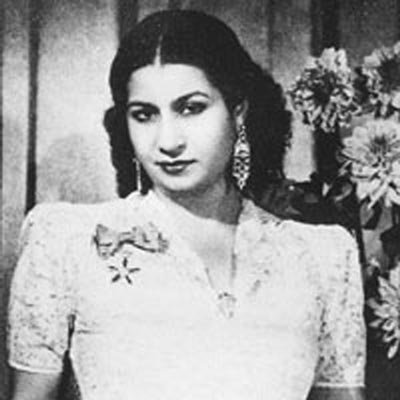Born: May 4, 1904, Tummay al-Zahayrah, Egypt
Died: February 3, 1975, Cairo

Umm Kulthum was a Egyptian singer, known for her powerful voice and for her ability to use melody and improvisation to bring out the meaning and mood of her lyrics. Umm Kulthum promoted traditional Arab music and became one of the most famous Arab singers of the 20th century. Her name has been transliterated in English with various spellings, including Om Kalsoum and Oum Kalthoum.
Born in a village in the Nile Delta of Egypt, Umm Kulthum attended Qur’an (Koran) school (a religious school for children). Her father, the village imam (prayer leader), sang religious songs at weddings and other special occasions. When he discovered that her voice was very strong, he gave Umm Kulthum lessons and included her in performances. She subsequently gained a local reputation, touring the delta region for about ten years. About 1923, the family decided to enter the lucrative business of commercial music in Cairo, Egypt, and by 1928 Umm Kulthum had become one of the most successful performers in the city.
During the 1930s and 1940s Umm Kulthum’s fame and artistic leadership continued to increase. She made six motion-picture musicals and worked with Egyptian composers Zakariyya Ahmad, Muhammad al-Qasabji, and Riyad al-Sunbati. She also became known for her moving renditions of neo-classical poetry—for example, “Salu Qalbi” (1946) by al-Sunbati-as well as for her renditions of colloquial Egyptian lyrics such as “Ana fi Intizarak” (1943) by Zakariyya Ahmad. After the Egyptian coup of 1952, Umm Kulthum recorded numerous songs in support of the new republic and became associated with President Gamal Abdel Nasser. In many interviews and through other avenues to the public, Umm Kulthum promoted Egyptian and Arab culture.
In the 1960s Umm Kulthum began to sing simple love lyrics similar to those that had been made popular by younger Egyptian stars such as Abd al-Halim Hafiz. In 1964 she began what would become a well-known collaboration with the Egyptian singer and composer Muhammad Abd al-Wahhab in which she sang ten songs that he had written especially for her. These songs, such as “Inta Umri” (1964), gained wide popularity. After the Egyptian defeat in the Six-Day War (1967), Umm Kulthum toured the Arab world on behalf of Egypt, donating the proceeds from her concerts to the Egyptian government. During her career, Umm Kulthum recorded more than 300 songs. The most famous include “Raqq al-Habib” (1944) by al-Qasabji, “al-Atlal” by al-Sunbati (1966), and many of the zajal (works of colloquial Arabic poetry) by Zakariyya Ahmad.

